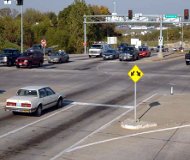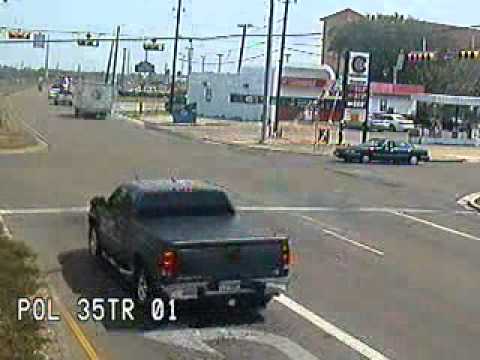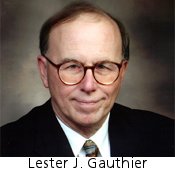#PhotoEnforcement
Costa Rica Unveils Most Burdensome Speed Camera Program Yet
Since September 8, motorists in Costa Rica have been racking up speed camera fines worth 308,295 colones (US $600) each. Sixteen speed cameras have been flashing around the city of San Jose at a rate of a thousand per day as part of the brand new program. Those fines — among the world’s highest — are not being mailed to vehicle owners, as is the case elsewhere. Instead, motorists are expected to check their plate number on a regular basis to see if they need to pay up.
On September 26, the first set of license plates was published in the form of a 120-page list in La Gaceta, the government’s official journal. The alleged violations are sorted by day, so all of the country’s vehicle owners must scan each day of the week looking for their vehicle. Those among the 15,429 plates that have been listed so far have until October 17 to come up with the $600 in cash.
Texas City Works With Traffic Camera Company to Nullify Anti-Camera Vote
A red light camera company and officials in the city of Baytown, Texas are conspiring to nullify the results of an election. In November, 58 percent of voters approved a ballot measure prohibiting the use of red light cameras unless a police officer is present to witness any alleged offense. American Traffic Solutions (ATS) filed suit in February to overturn the result of this vote, and city officials on September 22 asked Harris County Judge Michael D. Miller to sign off on a settlement of this suit that was prepared by ATS.
Washington: City Goes All Out to Defend Dangerous Camera Program
The city of Redmond, Washington decided last week that it had no intention of putting the issue of red light cameras and speed cameras to a vote of the people. The mayor refuses to transmit the completed petition signatures for an initiative on the topic to the county auditor, despite a state law that sets a three-day deadline for the city administration to do so. On Tuesday, Redmond police released data that show accidents have increased since at
Missouri: Violations Still Down With Longer Yellows
Photo enforcement advocates downplay the benefit of increased yellow time in addressing the problem of red light running. New evidence from Arnold, Missouri shows that red light cameras continue to flash at a much lower rate since the state mandated longer signal timing at a number of photo-enforced intersections.
Arnold was the first jurisdiction in the Show Me State to allow a private company, American Traffic Solutions (ATS), to mail traffic tickets to residents. Since 2005, ATS has handed out more than 30,000 tickets worth over $3.1 million. In 2010, tickets were being pumped out at an average rate of 800 per month. With longer yellows, that figure averaged just 113 through July and August using the most up-to-date data available.
Texas: Red Light Camera Tickets a Man Running a Green Light
Cities that use automated ticketing machines at intersections routinely assert two things: The camera does not lie, and at least three humans review each citation before it is dropped in the mail. That did not happen in Port Lavaca, Texas. On September 12, Port Lavaca Police Sergeant Kelly Flood signed a ticket accusing Dale Price of running a red light and demanding he pay $75 by October 12, but the light was green.
“Based upon my review and inspection of the recorded images, I state that a violation of ordinance #S-1-08 did occur,” the ticket stated just above Flood’s signature. “I declare under penalty of perjury under the laws of the state of Texas the foregoing is true and correct.”
Louisiana: Legality of Municipal Red Light Camera Contract Questioned
Red light cameras and speed cameras may not be legally operating in Lafayette, Louisiana, according to current and former city officials. Councilman William G. Theriot was first to suggest that the city-parish President Joey Durel did not have the authority to unilaterally extend the contract with Australian automated ticketing vendor Redflex Traffic Systems when the agreement expired in June.
“I think a lot of people want to have a say so in what’s involved in it,” Theriot told KATC-TV. “Secondly if it is extended, we don’t know if the terms were negotiated or what was involved.”
How To Tell If A Red Light Camera Is A Safety Tool Or A Dangerous Form Of Taxation
[Editor’s note: The following was sent to us by Donald Sawicki of Copradar.com, a site where Mr Sawicki offers insight and literature on radar and red light camera safety issues to victims, defendants and legal professionals.]
The first step towards determining if a red light camera exists to make money is to answer the question: Does the traffic light force drivers that just happen to be in the wrong spot (worst case) when the light changes yellow to brake safely (worst spot at worst time)? If the answer is “safe braking for worst case” the camera probably exists for legitimate reasons of safety. If the yellow light forces unsafe or even dangerous worst case braking, the camera is strictly a source of money (a dangerous tax) that goes to cities or states and equipment suppliers (which typically split the booty). To catch (trap, trick, hook or crook) more redlight runners some municipalities shorten the yellow time forcing drivers (even NEAR worse case distance) to run the light. It gets worse: many jurisdictions use outdated driver reaction times (some established over half a century ago) when determining yellow duration, resulting in short yellow light times and unsafe worse case braking.
Missouri: Lawsuit Challenges Red Light Camera Legality, Astroturf
Lawyers for motorists in Missouri are looking to capitalize on recent discoveries regarding deceptive marketing campaigns orchestrated by red light camera companies. On Wednesday, The Simon Law Firm filed a class action lawsuit against American Traffic Solutions (ATS) and the city of Hazelwood seeking refunds for thousands of photo enforcement tickets issued without the sanction of state law.
“In bringing this class action, plaintiffs seek to expose what they and other Missouri citizens believe is an unscrupulous business venture between an out-of-state for-profit corporation and a municipal government seeking to fill city coffers,” attorneys Ryan A. Keane and John E. Campbell wrote.
Photo Radar Revolt Spreads to Canada
Jurisdictions throughout the United States have been dropping the use of red light cameras and speed cameras. On Tuesday, the revolt spread to Strathcona County, Canada where the county council voted 5-4 to replace automated ticketing machines with real, live police officers.
“As far as we can tell, other than British Columbia a few years ago, we’re the first jurisdiction in Canada to remove photo radar,” Councillor Brian Botterill told TheNewspaper in an interview.
National Coalition for Safer Roads Run by American Traffic Solutions
Last month, a group calling itself the National Coalition for Safer Roads (NCSR) obtained a great deal of exposure for red light cameras through the “National Stop on Red Week” publicity campaign. Several police departments around the country participated, with most news reports treating the issue as a public service announcement. Documents show the group coordinating this effort, NCSR, is controlled exclusively by the photo ticketing firm American Traffic Solutions (ATS).
Washington: Traffic Camera Company Runs Press Relations for Lynnwood
The distinction between employees for a private photo enforcement firm and taxpayer-funded public servants blurred in the city of Lynnwood, Washington. Emails between city officials and American Traffic Solutions (ATS) suggest a cozy relationship developed where both sides were willing to perform the duties of the other in terms of marketing and public relations.
Lynnwood Police Sergeant Wayne “Kawika” Davis, for example, used official government resources and time to come up with a marketing plan to sell for the privately held firm at a conference held at the Tulalip Resort Casino in June.
Washington: Appeals Court Blocks Binding Vote on Photo Ticketing
The Washington Court of Appeals yesterday delivered a big win to American Traffic Solutions (ATS), the photo enforcement firm that has fought hard to prevent the public from voting on red light cameras and speed cameras. A three-judge panel overturned last month’s decision by Whatcom County Superior Court Judge Ira Uhrig that had found the ATS suit was specifically crafted to block public access to the ballot.
The appellate judges sided with ATS, which argued Bellingham residents have no right to decide whether or not automated ticketing machines can be used in their city.
Initiatives to End Photo Enforcement Scheduled for Upcoming Elections
Voters in at least seven cities will soon have a chance to decide whether to prohibit the use of red light cameras and speed cameras. Initiatives are being certified for the ballot in five states across the country, despite an all-out effort by photo ticketing firms to block any public role in the matter. Early voting is already underway in Albuquerque, New Mexico for the October 4 municipal election.
“Shall the Albuquerque city council continue authorizing the ‘Safe Traffic Operations Program,’ commonly called the ‘red light camera program’?” the city ballot asks.
California: Traffic Camera Firm Shakes Down City
As municipalities around the country increasingly have second thoughts about continuing red light camera programs, the private companies in charge of the photo ticketing are turning up the heat. Redflex Traffic Systems announced to its Australian shareholders last week that it continues to adjust contract language, boosting the penalties for cities that turn their back on photo ticketing. Just such language has hit in San Bernardino, California where rival photo ticketing firm American Traffic Solutions (ATS) is threatening to impose an extra $1,896,202 fee to punish the city council for attempting to get out of the contract in March. Officials had already approved cutting a check for $175,000 to the company as compensation.
Another California City Joins Red Light Camera Revolt
A fourth city in Orange County, California is poised to outlaw the use of red light cameras. Earlier this month the Laguna Niguel city council voted 4-1 on first reading of a measure that would prohibit the use of automated ticketing machines in the future — the city has never allowed camera vendors to operate on its streets.
Linda Lindholm and Robert Ming introduced the measure citing the “mixed reviews” the cameras have received with studies showing red light cameras increase accidents ( view studies).


























Recent Comments